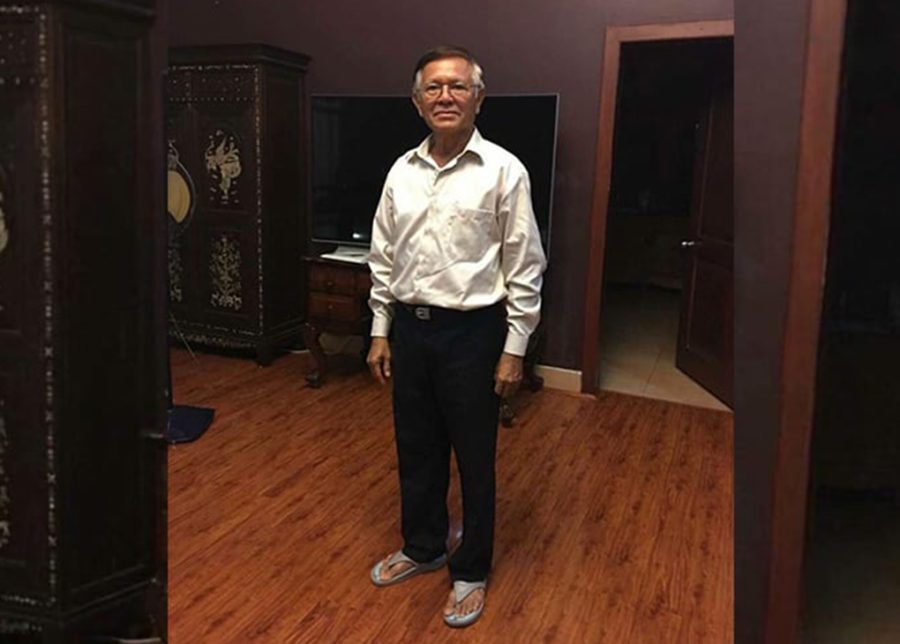The Justice Ministry said the investigating judge overseeing former opposition leader Kem Sokha’s treason case could continue his investigation—which has already spanned 18 months—indefinitely.
On Sunday, the dissolved CNRP released a statement demanding the immediate and unconditional release of Sokha, arguing that as of March 3 the opposition leader had been unjustly detained for 18 months.
The statement also called on international communities to take further action against Prime Minister Hun Sen’s government to restore democracy and human rights.
Justice Ministry spokesman Chin Malin, however, denied that Sokha was in detention.
Following his arrest in September 2017, Sokha was imprisoned at Tbong Khmum province’s Trapaing Phlong prison for a year in pretrial detention. He was released on bail under conditions banning him from overseas travel and confining him to a four-block radius of his Phnom Penh home—restrictions that have been labeled as amounting to house arrest.
Malin said Sokha was merely under court supervision, and an investigating judge could continue his investigation as long as the case required. He said he could not guess how long Investigating Judge Ky Rithy might take to finish the Sokha investigation.
“Mr. Kem Sokha, according to legal processes, is not in provisional detention. [He] is under judicial supervision,” Malin said.
“This procedure has no time limit,” he added. “It depends on the complexity of the case.”
Y Rin, spokesman of the Phnom Penh Municipal Court, told VOD on March 4 that the case was still being processed.
The judge “is taking action according to the procedure,” Rin said. “Just wait and see. Just wait and I will contact him.”
Meng Sopheary, one of Kem Sokha’s defense lawyers, noted that after 18 months the courts still could not find proof of Sokha’s purported crime of colluding with foreign powers.
She added that although Cambodian law did not limit the length of an investigation, related parties could request to have the investigation closed after a year.
“In the case that the person charged is not under detention, our law does not state when the investigation needs to be closed, but there is an article stating that if the investigation has taken a year, related parties have the right to ask the investigating judge to close the investigation,” Sopheary said.
In a speech at a ceremony on the morning of March 4, Prime Minister Hun Sen said there would no pardon or political compromise.
“The government tried to keep the door open for you all. But whether you come in or not, it’s up to you. Don’t hope that there will be a pardon or acquittal for anyone,” Hun Sen said, directing his words to opposition politicians.
“And don’t wait for a political compromise. This is not a political matter but a legal matter,” he said.
Adhoc spokesman Soeng Sen Karuna disputed the notion that the case was strictly legal; Hun Sen’s words influenced court decisions and the judicial system had failed to show its independence, he said.
“We have always noticed that this power is not independent and neutral in fulfilling its duty,” Sen Karuna said. “As an influential politician and leader of the country, [Hun Sen’s] speeches affect the decisions of judges.”
Sokha’s case has drawn criticism from foreign governments, including the EU, which has embarked on a formal process to suspend preferential trade with Cambodia, and the U.S., whose embassy in February said Sokha had been unjustly detained for more than a year without evidence.
Cambodia’s Foreign Affairs Ministry has expressed disappointment at the criticism, saying the U.S.’s statement was “undiplomatic” and did not respect Cambodia’s sovereignty.












